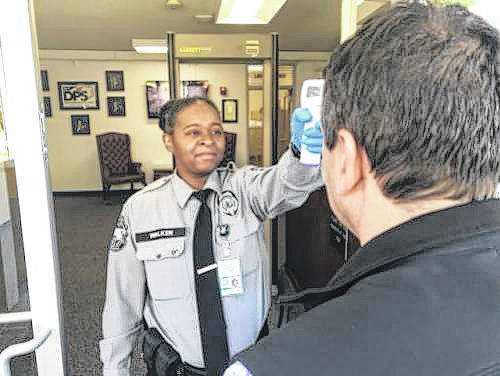RALEIGH — To stop the spread of coronavirus, the North Carolina Division of Prisons will not accept offenders from the county jails and will dramatically reduce the transfers of offenders within the prisons for the next 14 days, effective at 6 p.m. on Tuesday, April 7.
“We must deny this virus the opportunity to spread,” said Todd Ishee, Commissioner of Prisons. “It has gotten into three of our prisons and we must contain it there to the greatest degree possible. This is imperative for the health and safety of our staff and the men and women who are in our care.”
This new modified operations plan, which is supported by the North Carolina Sheriffs’ Association, is in effect a “stay at home order” for the vast majority of the 34,400 offenders in the state prison system from April 7 to April 21, at which point the plan will be reexamined.
Over the past week, seven offenders have tested positive for coronavirus, also known as COVID-19, at three different prisons — Johnston, Caledonia and Neuse correctional institutions. Over the weekend, face masks were distributed to all staff and offenders at those prisons.
The 14-day moratorium on the acceptance of new offenders from the county jails, and the suspension of the vast majority of offender transportation between the prisons, is in keeping with the spirit of the Centers for Disease Control’s guidance to the country to shelter in place.
Offenders will continue to be transferred over the next two weeks for the following reasons:
• To comply with court orders.
• For medical or mental health reasons.
• For security purposes to address critical incidents within the prisons.
• To release offenders who have completed their prison sentences.
Efforts are underway to transfer those offenders who are scheduled for release over the next two weeks to areas close to their homes, where they will be released in accordance with their individual release plans. No offender will remain incarcerated past their scheduled release date. Also to be transferred to their assigned prisons over the next two days will be new offenders who have been admitted to state prison and who have remained free of COVID-19 symptoms.
Over the past month, offender transportation movements have been limited to only new offenders to the prison system, court-ordered, high priority and health care movements. Transported offenders have been medically screened both before and after getting on the transportation bus.
“I want to thank the North Carolina Sheriffs’ Association for working with us in this critical next step to combat coronavirus,” said Ishee. “Everyone is working hard to fight this dangerous virus and I commend prison staff for their bravery in the face of these challenges.”
Correction Enterprises is producing face shields, hospital-style gowns and washable face masks. All staff and every offender will get a face mask once enough are manufactured. In addition, Correction Enterprises is producing large quantities of sanitizer and hand lotion to be used in all the prisons.
For the past month, offenders throughout the prison system with fevers, coughs and symptoms of respiratory illness have been isolated in the prisons from the prison general population. Testing for COVID-19 is being done per the recommendations by the Centers for Disease Control. The results are usually obtained within 48 hours.
In addition, new offenders to the state prison system have been quarantined for 14 days following initial medical screening for potential COVID-19 symptoms, to prevent the introduction of the virus into a facility.
Staff medical screenings have been enacted at every prison, including temperature checks, in an additional effort to reduce the chances the virus gets into a prison.
The screening of staff, as well as anyone else authorized to enter a prison, began on March 20 at Central Prison and North Carolina Correctional Institution for Women (NCCIW), both located in Raleigh, and expanded to every prison starting on March 31, after a shipment of no-touch thermometers arrived and were distributed to facilities across the state.
As a result, entry to any prison will be denied to anyone with a temperature of 100 degrees or more, who is experiencing respiratory symptoms of cough or shortness of breath, or fatigue and muscle aches indicative of a viral infection, or who has been exposed in the past 14 days to anyone who is suspected or diagnosed with COVID-19.
These medical screenings also will include questions asked by designated staff at prison entrances. The screenings will be done before anyone goes through the security screening process.
Visitation and volunteer visits to the prisons were suspended on March 13, and a series of other actions were subsequently taken by the North Carolina Division of Prisons to prepare for the emergence of COVID-19 in the state prisons and to reduce the chances it could spread within a facility or within the prison system.
“We are working hard to be proactive and to take every reasonable step to maintain the health and safety of the staff and the offenders,” said Ishee. “I am so proud of the staff for their hard work and dedication in the face of these challenges. We are a team with a mission that has grown tougher by the day in recent weeks. I have no doubt the staff is up to the task. I am proud of them.”

